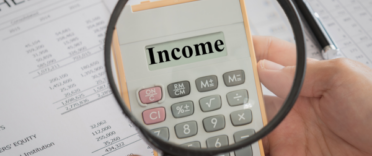 As the impact of the pandemic on the economy persists, we are all forced to consider its effect on our lives and our livelihoods. There is no getting away from the fact that many people and businesses have already suffered devastating consequences of lockdowns and restrictions. And whilst we look forward to the vaccine bringing some sense of hope, we're aware that things may take some time to settle.
As the impact of the pandemic on the economy persists, we are all forced to consider its effect on our lives and our livelihoods. There is no getting away from the fact that many people and businesses have already suffered devastating consequences of lockdowns and restrictions. And whilst we look forward to the vaccine bringing some sense of hope, we're aware that things may take some time to settle.
High among our worries is that falling ill might leave us unable to work and given the accounts of long-covid, just how long would we survive on our savings? Sick pay insurance, which is commonly called Income Protection insurance, provides an income if you're unfit to work has and in this article we'll expand on how this insurance can protect you if you get Coronavirus.
For life insurance and coronavirus help, see our article - 'Does my life insurance policy cover Coronavirus?'
For critical illness insurance and coronavirus help, see our article -'Is Coronavirus covered under a critical illness insurance?'
Will my existing income protection policy cover me if I get Coronavirus?
Yes, existing income protection policies that were taken out prior to the Coronavirus outbreak would pay out if you were unable to work due to coronavirus. Income protection is designed to pay an income in the event that you are unable to work due to any illness or injury, so long as your chosen 'deferred period' (time between becoming incapacitated and receiving your benefit) has been met and you remain medically unfit for work.
It's apparent that many people will have suffered income reductions and losses during the pandemic. This may have an impact on how much money you can claim from your policy because your income will be assessed when it is time to claim. To understand the claims process and how you claim will be assessed you should read our article 'Income protection insurance claims - what you need to know'
Does Income Protection pay out if I can't work because I have to self-isolate?
No, income protection is not designed to cover your income in the event that you cannot work due to self-isolation on government advice. Your income protection policy may, however, pay out if you go on to have symptoms and become medically unable to work for longer than your chosen deferred period.
Will a new income protection policy cover me for Coronavirus?
It depends. Most new income protection policies will cover you for Coronavirus, however the application process may require you to complete some extra questions. If a policy doesn't cover Coronavirus then this should be stated under 'exclusions' in the terms and conditions.
Check before you buy
One of the key things that changed at the beginning of the pandemic was that shorter deferred period options for income protection insurances were withdrawn. To understand more about deferred period's, read our article 'What is a deferred period on an income protection policy?. Essentially, it is the time between your first day of not being fit to work and when you receive money from your policy. Most people choose between 1 and 6 months depending on how long their sick pay from work would continue and also, how long they would be able to get by on savings. Although some insurance companies are starting to offer shorter deferred periods, these policies are unlikely to protect you for Coronavirus - at least for the first month. So, you can arrange a policy that will replace your income from the first day that you can't work, but not if its due to Covid-19.
The positive caveat here is that insurance company LV offers a policy where, if you are unable to work due to illness or injury for 4 weeks or more, the exclusion for Coronavirus stops applying. At the time of writing, LV is the only company offering Day 1 and 1 week deferred periods for those customers who would need to replace their income quickly if they were unable to work through illness or injury.
Having Day 1 cover is what some people need and want but it does cost more than a 4 week or even 3 month deferred period. The longer that you can survive without the policy needing to pay out, the cheaper the policy becomes. This also ties in with the general rule of thumb that you should save around 3 months worth of your outgoings for a rainy day. In the real world this isn't always possible and some will have already used up their rainy day money due to loss of income and other Covid 19 factors.
How to buy income protection insurance
What is clear at this stage is that income protection providers are closely monitoring the situation and regularly reviewing their stance. If you are considering purchasing a new income protection policy then you should speak to an independent specialist as they will have the latest information to hand and can provide a tailored quote based on your own personal circumstances. By using our specialist income protection partner* you'll receive a personalised quote, help with the application forms and they will even chase the insurer on your behalf.
Additionally, you'll qualify for £50 cashback should you decide to take a policy out.
If a link has an * beside it this means that it is an affiliated link. If you go via the link, Money to the Masses may receive a small fee which helps keep Money to the Masses free to use. The following link can be used if you do not wish to help Money to the Masses and do not wish to qualify for the cashback referred to in the article - LifeSearch





